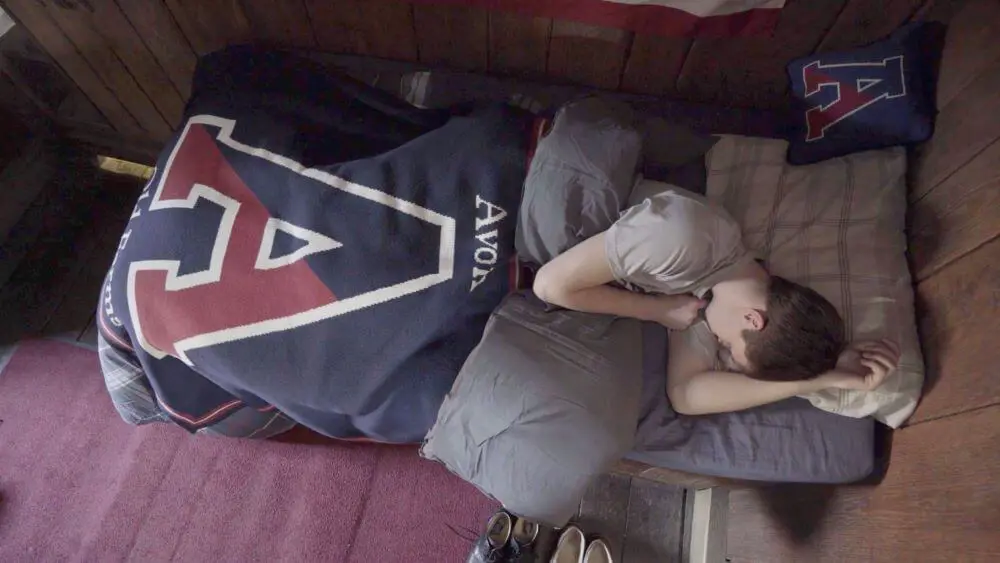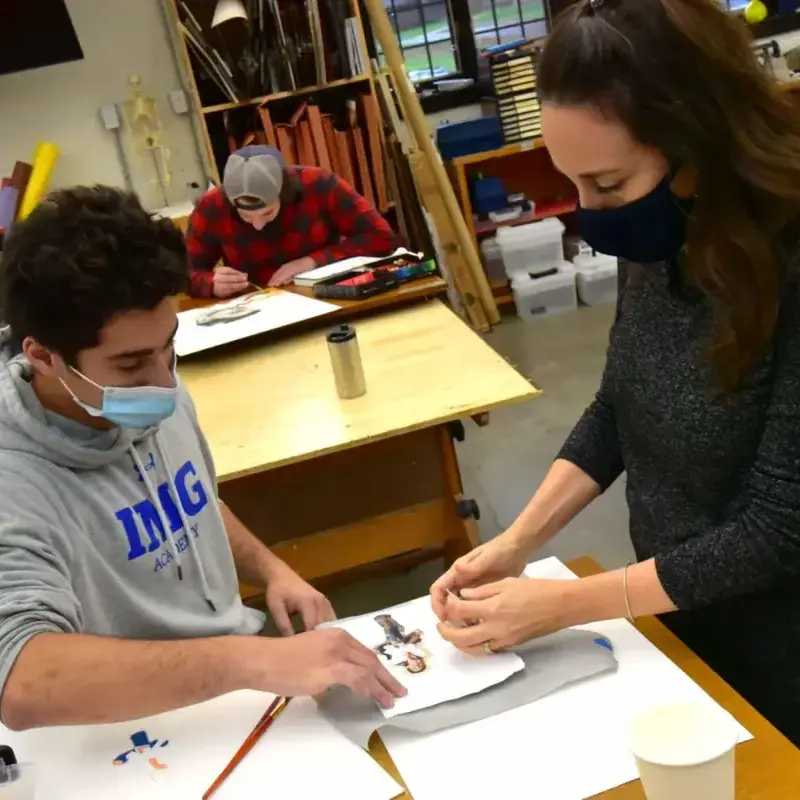OLLIE ROTHMANN
THE SUCCESSFUL BOARDING SCHOOL EXPERIENCE: 8 STEPS TO DEVELOPING YOUR ROUTINE
We've all heard it a thousand times, "you need a routine in order to succeed."
Developing a routine shouldn't be a daunting task! To help you in your path to navigating daily life at a boarding school, we've crafted some steps you can start with to nail down healthy daily habits. By the way, a routine is a great way to think about your day, but having a routine doesn't mean you need to have the same exact routine every day. If everyone followed a strict day-to-day routine, this world would be full of unhappy robots.
So, what exactly is a routine? Simply put, a routine is a methodology of how you can go about getting your daily tasks completed in the most efficient way. The beauty of routine is the fact that each day is unique: not one day will be the same. Instead, the way you prepare for your day and the way you go through your daily tasks will be similar. Knowing that each day holds its own challenges, you can begin creating a daily routine that will bolster your ability to face whatever comes your way with the following steps.
1. Make a List the Night Before
Before you rest your head on the pillow, make a list of what needs to be done for tomorrow. Just jot down the information however it makes the most sense to you. Utilize apps—research the best 40 to-do apps for 2017—on your device to quickly type in tasks; scribble the list on a composition notebook; write each task on a sticky note; or, whatever works for you! Structure and penmanship aren't important here, just make sure you capture what you need to do tomorrow. Thirty seconds of your time the night before will provide you with a foundation for your routine in the morning.

2. Wake Up!
Getting up out of bed can be a challenge for a lot of people, and, most moms agree that teenagers are particularly prone to morning grogginess. One trick to combat the cozy bed syndrome is to place your alarm clock—or phone—at the opposite side of the room so that you have to physically get out of bed and walk across the room to shut off that annoying sound. Be sure to turn your volume all the way up! For those of you that prefer a gentle ease into your morning alarm, the Sleep Cycle app monitors your sleeping habits and wakes you up at just the perfect time accordingly.
3. Forget the Details
Mornings should not be stressful, once you get out of bed, let habit take over. Take a shower, brush your teeth, get dressed ...all the things you need to do to be presentable and ready take on the day. Whatever you do after getting out of bed is habit, the real routine begins once you're faced with your first task of the day, which should always be breakfast!

4. Fuel Up
Whether you're hungry in the morning or not, grab something to eat. It can be a piece of fruit with some yogurt or a lumberjack breakfast fit for, well, a lumberjack. Dr. Nina Radcliff, a staff writer for the Washington Times cites: “Studies have shown that eating breakfast is associated with better memory, concentration, learning, and creativity. In fact, when children eat a balanced breakfast, it has positive effects on learning in terms of behavior, thinking, and school performance—they perform better academically and are less likely to be tardy or absent.” So, eat breakfast. Your classmates will be not be distracted by a growling tummy and those valuable nutrients could be the difference between an A and a B.
5. Prioritize
Make sense of your list by prioritizing what needs to be done first. Now that you're tanked up on your protein, vitamins, and minerals to start the day, revert back to last night’s list. Is there anything that you need to add or can cross off? Take a look at your class schedule for the day. Number or arrange the tasks on your list in the order you need to complete them during your class day, whether it be an in-class portion of your research project or a calculus assignment that you will complete during your free block.
6. Chip Away
Find little pockets of free time during the day and use those spare minutes to chip away at your list. At Avon Old Farms school, the historic CT boarding school, the schedule is inherently structured, therefore, it can be tough to carve out some free-time. However, every day you'll find yourself with small blocks of time, perhaps if lunch dismisses early or if practice doesn't start until later in the afternoon. Use these small blocks of time to chip away at items on your list. Use ten minutes to complete a few problems on your math homework or a section on your Common Application for college. Utilizing these small gaps of time will result in less to do as you get closer to the end of the day. Chipping away during small moments of free time is the key to efficiently managing your time at a private New England boarding school.

7. Study
Scheduled study time is a crucial addition to a successful routine. By the time guided study time or teacher enrichment hour rolls around on campus at Avon Old Farms high school for boys, students may be feeling tired from the day's activities. Study time Yet, there still may be some items on your list to check off. Chances are the last thing you want to do is tackle a Mount Everest-like pile of work, so, tap into that grit and then you will simply have to continue chipping away at the last few tasks until everything has been crossed off of your list.
8. Rinse & Repeat
Developing a routine takes some time. It is a process of trial and error. If there is something that can be more efficient or that you may not like about your routine, change it for the next day. After a few days of refining your routine, you'll be on track to adopting it as a way to navigate your daily life.
Key Takeaway for New Boarding School Students
Generally, new students find that the hardest part to acclimating to a boarding school is finding a way to manage their time. A long-time faculty member here at Avon Old Farms, tells the new students that, “one does what he has to do, before he does what he wants to do.” This is true, however, by using this 'routine' methodology to navigate your day, you will have more time to do what you want to do because you will have completed what you have had to do.
Learn More About Avon Old Farms
ABOUT THE AUTHOR
|
|
OLIVER ROTHMANN |
More Blog Posts
|
|

































